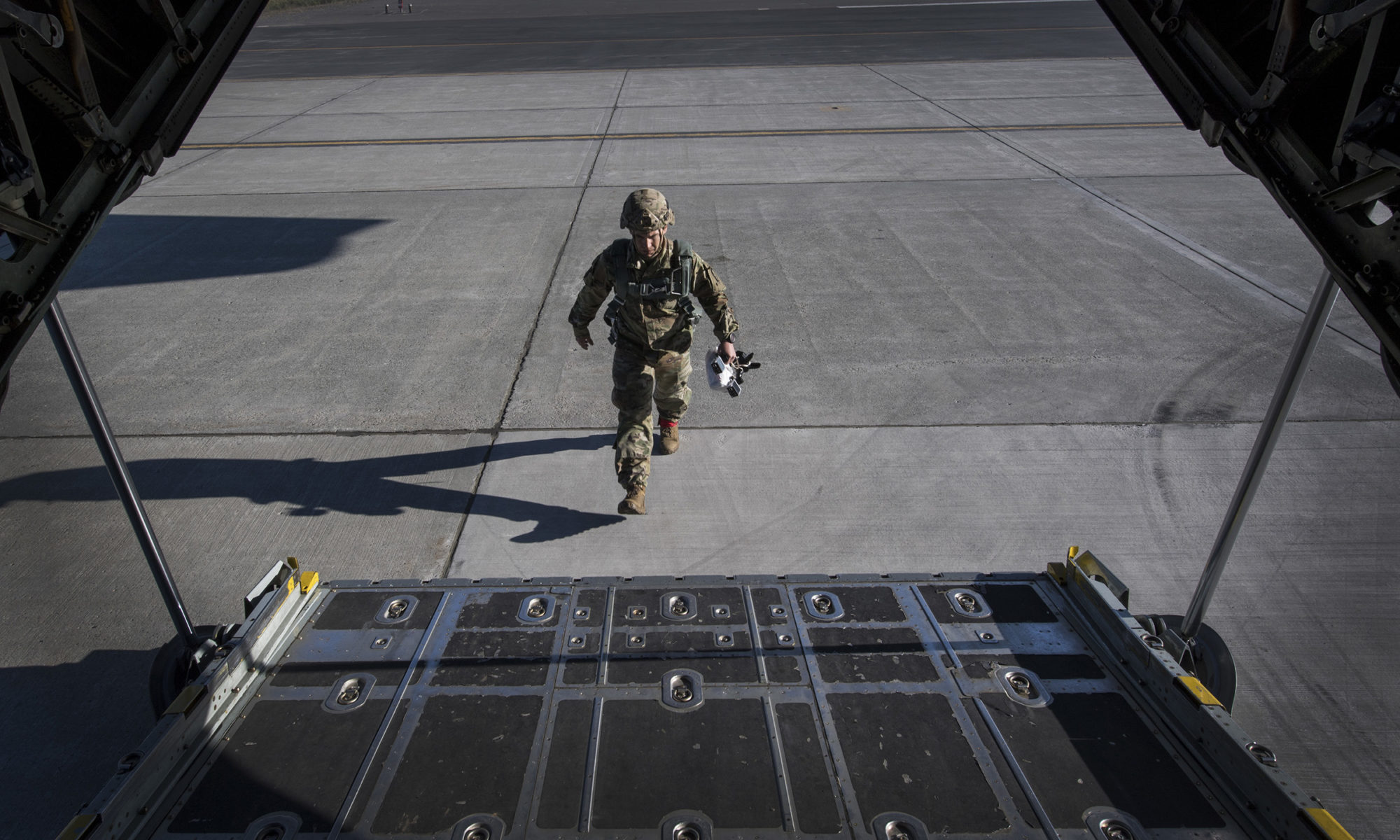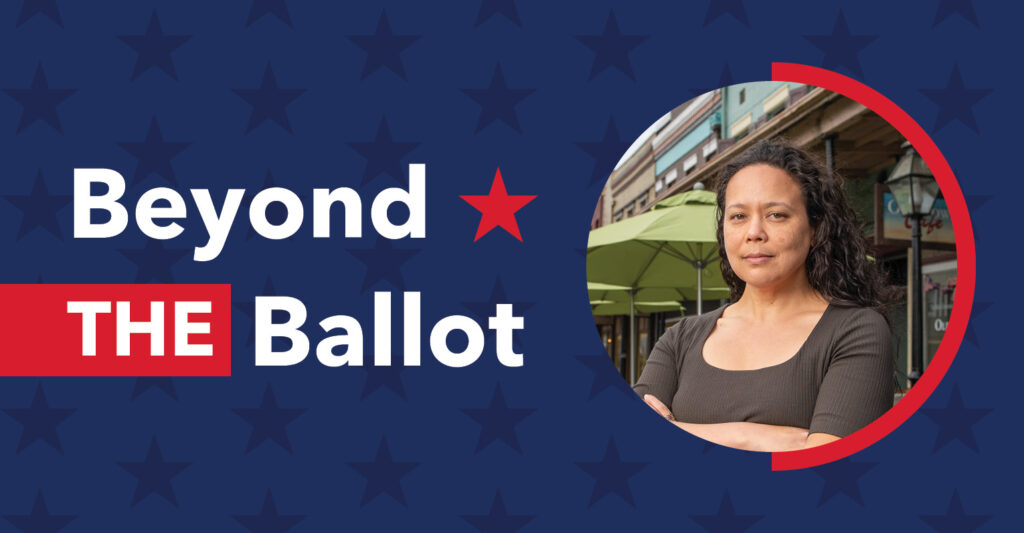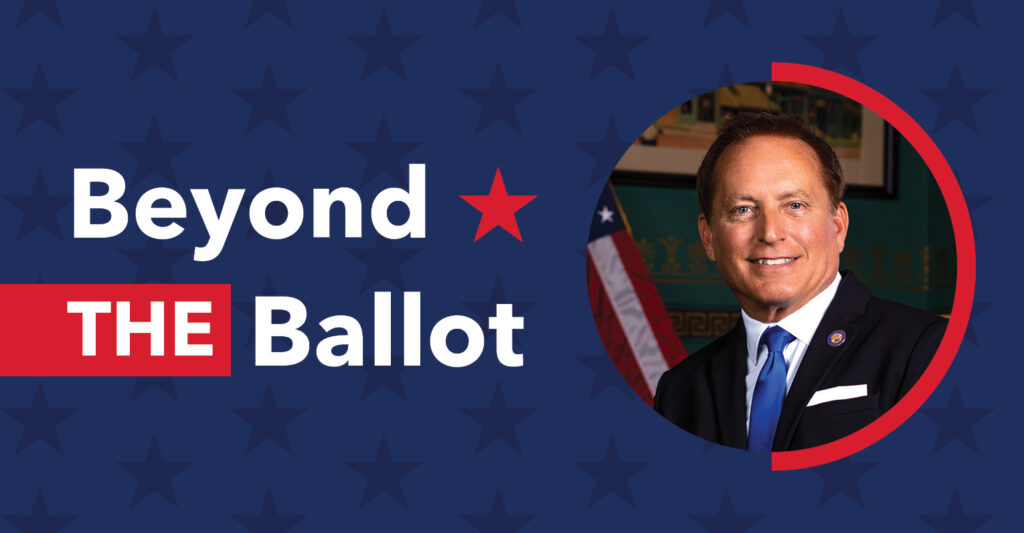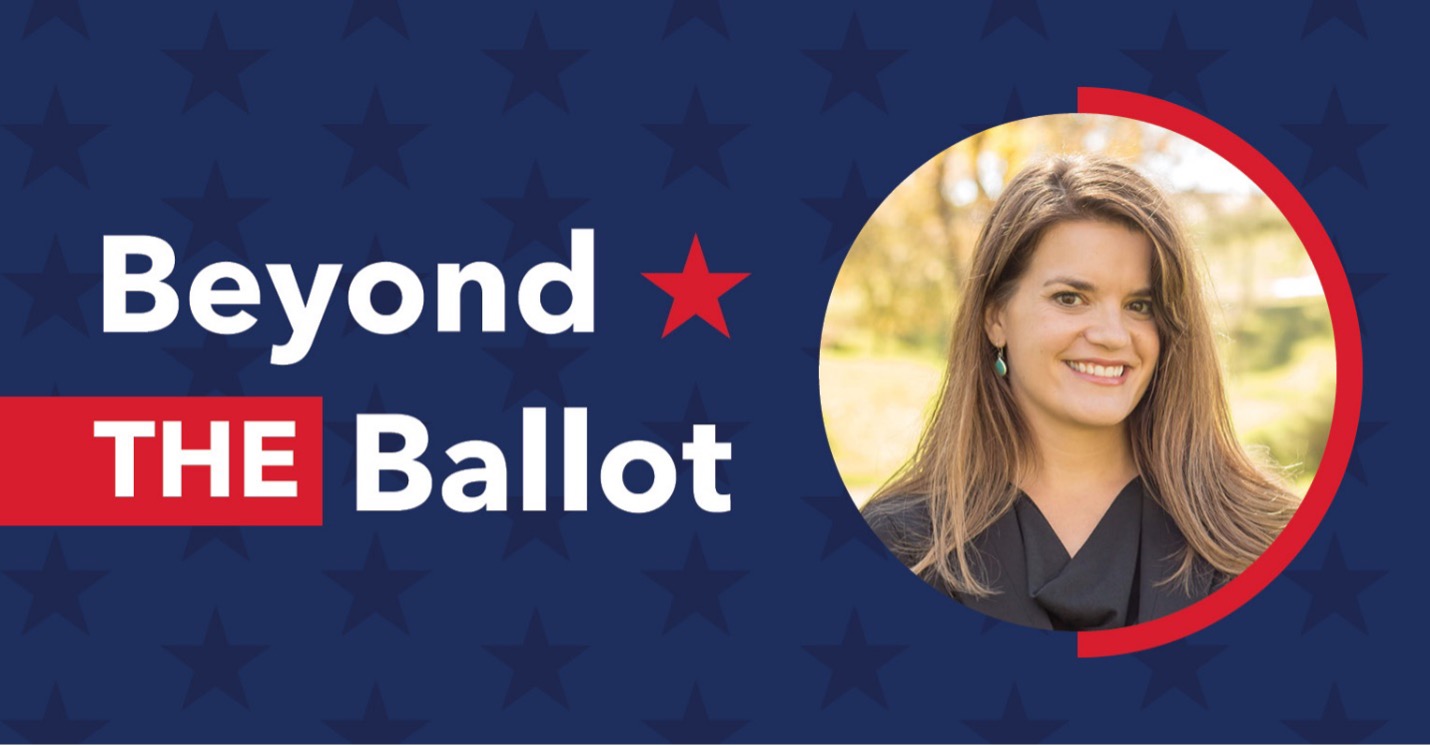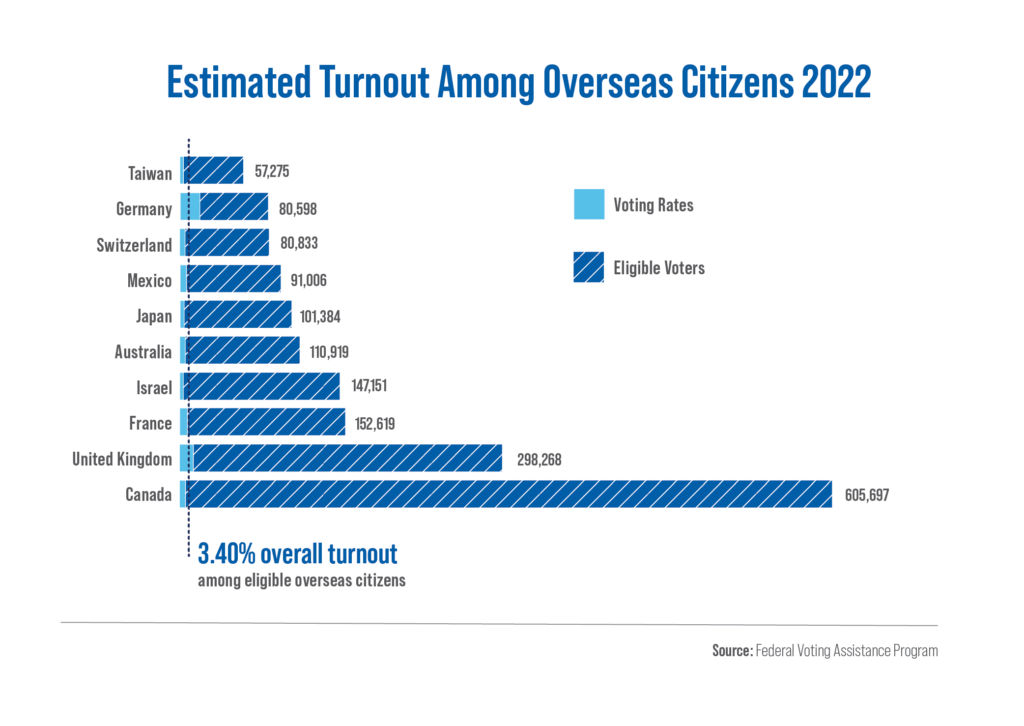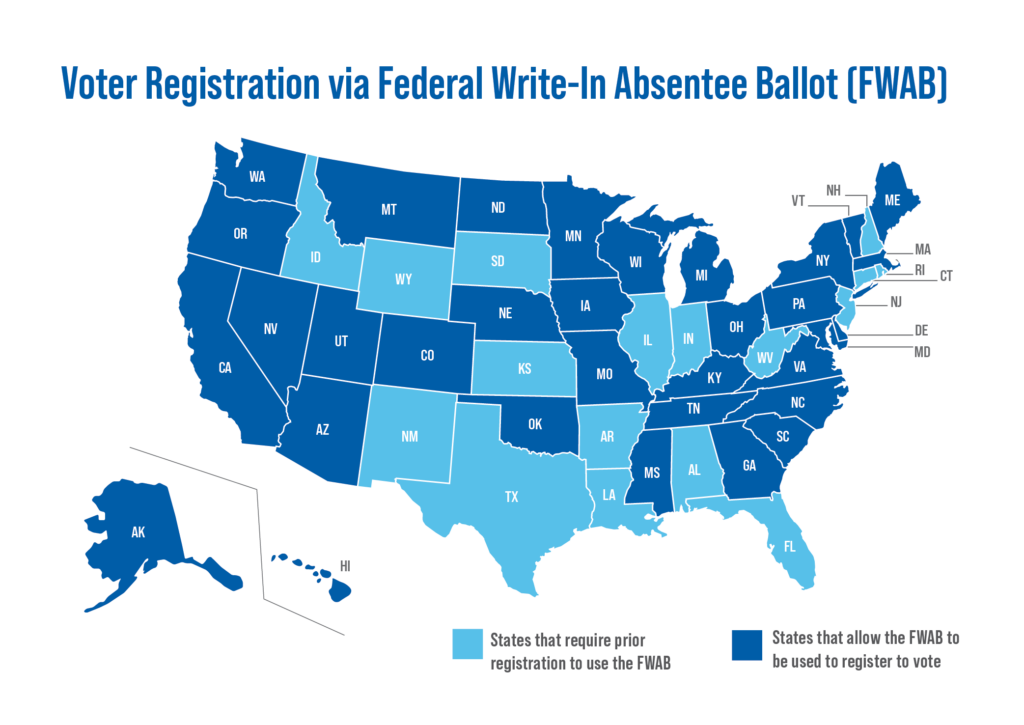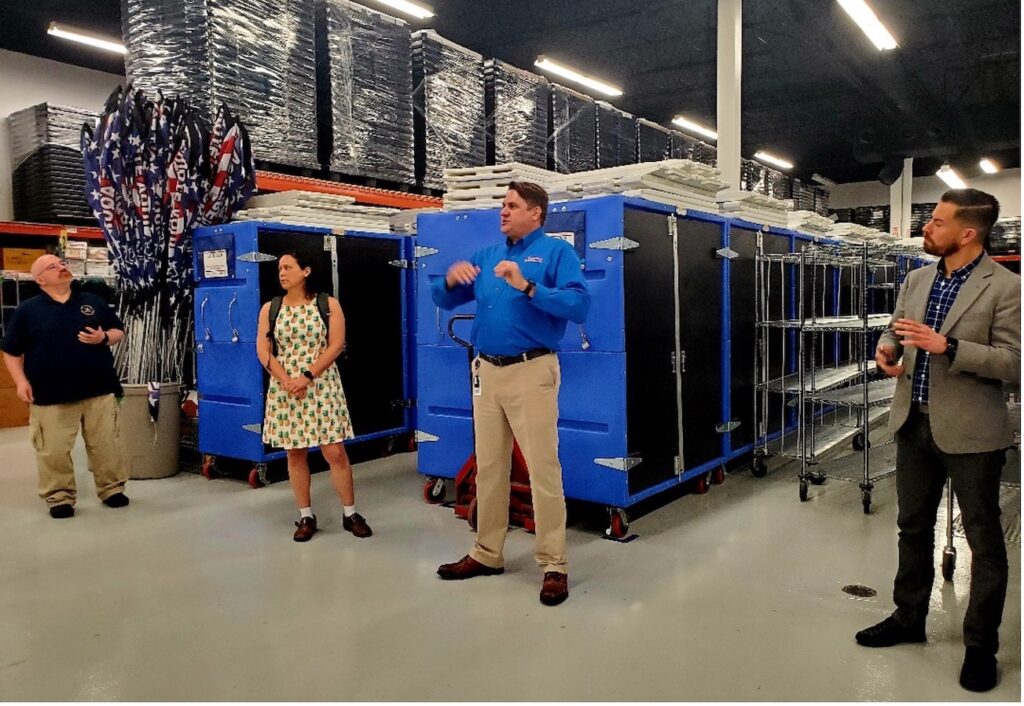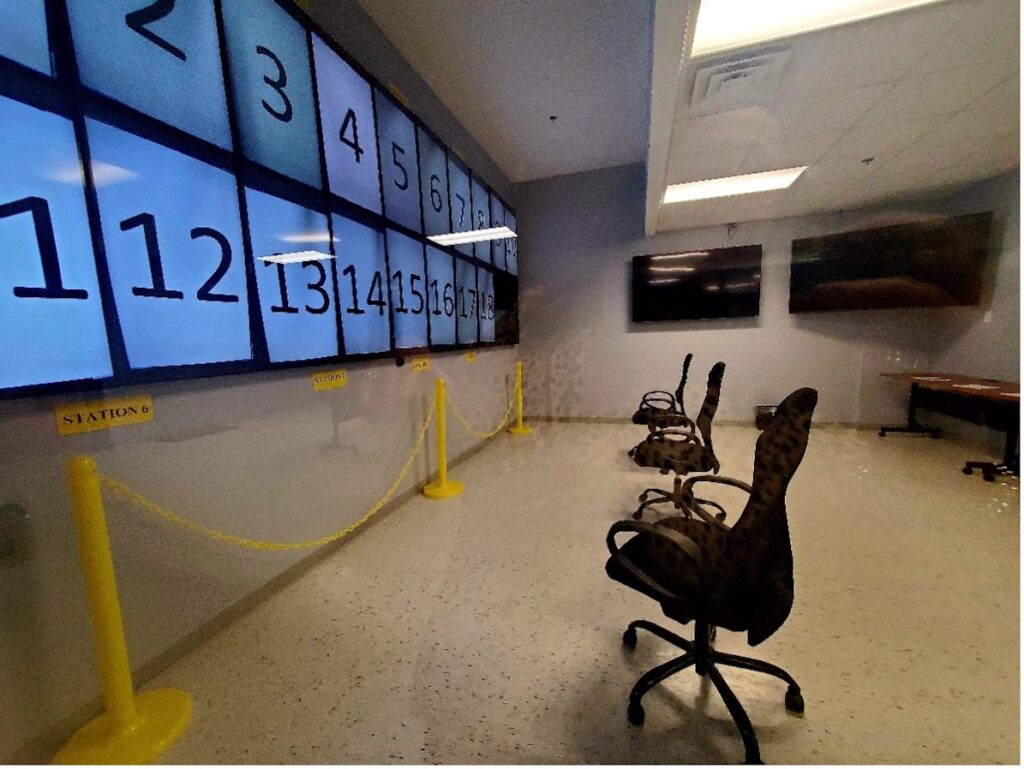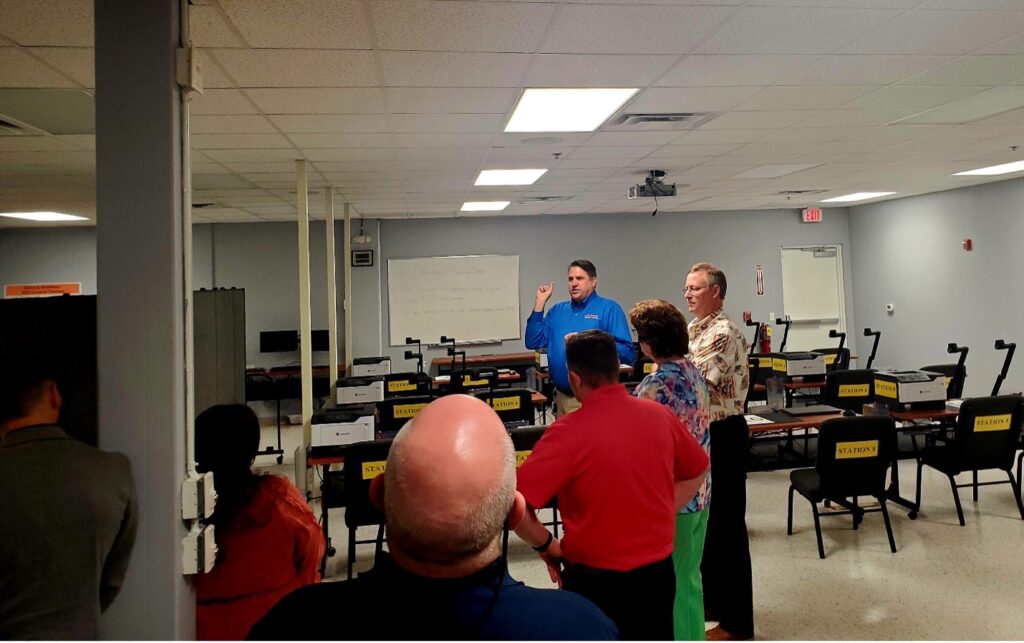By Morgan Thomas, Policy Associate
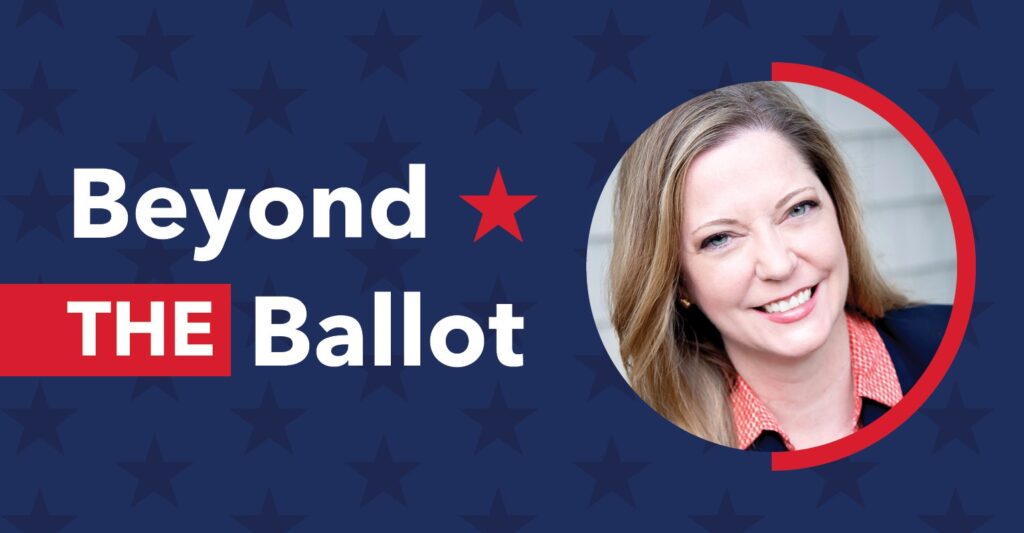
Karen Brinson Bell is no stranger to public service. In 2019, she was selected as the North Carolina State Board of Elections Executive Director. Brinson Bell’s father was the mayor of her small, eastern North Carolina hometown when she was born and worked in government for most of his career, which inspired her to study political science and mass communications at the University of North Carolina Ashville. After college, she initially worked in journalism and nonprofits before becoming a trainer and recruiter for a regional real estate company.
Her training background prompted a friend to recommend she apply for a new temporary position working in elections with the North Carolina State Board of Elections. She applied for the position and was hired as a district elections technician, serving twelve counties in Western North Carolina from 2006-2011. The job became available because of the Help America Vote Act of 2002, which provided states with funding to replace dated voting equipment. Karen’s position was focused on training staff on the new voting equipment and supporting the counties in whatever form they needed.
“There was a county where the director’s husband had a massive heart attack the night before the election, and she only had a seasonal part-time worker,” said Brinson Bell. “That person got the election going, and I came in that night to help out. So, you know, whatever was needed is where I stepped in, and that prepared me to be a county elections director.”
After her time as a district elections technician, Brinson Bell went on to serve as the election director for Transylvania County, a small county outside of Asheville, from 2011-2015. From there, she went on to work for a software elections vendor who provided software services for inventory management and poll worker assignments to counties while also consulting on ranked-choice voting election administration. Brinson Bell’s deep understanding and expertise in ranked choice voting election administration led to her involvement with the formation of the Ranked Choice Voting Resource Center, now a 501(c)(3) nonprofit organization. North Carolina was the first state to utilize statewide ranked-choice voting since the early 1900s in the 2010 runoff election. It was during this time, and assisting Hendersonville, NC, with ranked choice voting elections, that Brinson Bell established herself as a subject matter expert in this field.
“There was a time when I was one of the most experienced election administrators in ranked-choice voting in the country,” she said.
Shortly after her consulting work, Brinson Bell was appointed as the North Carolina State Board of Elections Executive Director in June 2019. As an election director, she serves as the chief election official in the state and has oversight of all 100 county boards of elections. This includes overseeing the conduct of elections, voter registration, election reporting, candidate filing and campaign finance. To streamline election information and campaign finance reporting across counties and the state, the North Carolina Board of Elections developed an in-house system called SEIMS beginning in 1998. Brinson Bell and her team set out to revamp and modernize SEIMS in the coming year thanks to recent funding aimed at updating the in-house system.
“In 1998, our very own in-house development team developed a state election information management system, we call it SEIMS,” she said. “It was one of the first statewide voter registration systems, and it’s something that we have continued to build out. We essentially have 13 modules now provided to the counties so that all counties are linked through the SEIMS system.”
Brinson Bell is the fourth elections director for North Carolina and the only elections director to have had first-hand experience at both the county and state levels. She credits her experience with the county for shaping her approach to training her team.
“We call ourselves Team 101 because we have 100 county boards of elections and one state board all working together,” she said.
One way Team 101 works together is through the “HUBS” program, an acronym that stands for “help us become successful.” Each hub is focused on a different area of election administration.
“For example, there’s a hub for in-person voting and absentee voting by mail, and each hub is made up of subject matter experts within our agency who directly work in that subject area. We try to make sure there is a mix of experts from large and small counties to ensure we have varying perspectives coming to the table,” said Brinson Bell.
Finding innovative ways to train and share knowledge amongst her colleagues at the state and county levels is one way Brinson Bell helps communicate updates or changes in the elections administration process. With over 19 years of experience in the elections space, she has witnessed many changes in the administration of elections. When asked about what changes she’s witnessed over the years, she noted technology as the most significant change.
“When I worked in field support at the district level, I did not have a smartphone; we had to use a real map,” said Brinson Bell.
“Once I moved to the county level, they still had two typewriters in the office, and I remember saying we have got to move forward. Now, we have electronic voting equipment, electronic voter registration database systems, and other electronic processes, and I’ve seen a positive progression of technology in that regard.”
Technology also played a significant role during the COVID-19 Pandemic, when many election processes had to move to an electronic platform and election offices nationwide had to incorporate virtual elements into their typical workflow.
“Our counties started utilizing Teams and Zoom for meetings, training and conferences. We started having virtual huddles twice a month to keep officials apprised of new procedures, laws or court proceedings. We also had outside organizations like the EAC and CISA provide virtual training for us. That was really helpful,” said Brinson Bell.
Another change she noted was how the complexity of elections has changed over time. The increasing use of technology in elections also necessitates complex cybersecurity requirements and a greater understanding of new voting equipment and election laws to better serve today’s voters. Today, Brinson Bell believes election administrators have to take on more roles than compared to the past.
“There is just so much. The complexity of the laws, the technology and, in my state, the sheer volume of our registered voting population is more than 7 million voters now,” she said. “I also think elections becoming classified as critical infrastructure has just put elections in more of the spotlight now. We as elections officials need to be fluent in more complex procedures.”
The complexity of election administration has presented challenges in the election space. Brinson Bell cited the increase in administrator turnover as one of the biggest challenges that North Carolina and many other states face. In particular, county election directors across North Carolina have seen the most turnover in recent years.
“We have experienced a change in county election directors 60 times since January 2019. Some of that comes from harassment, hostility and the overall increased tension of working in elections,” said Brinson Bell.
She believes that “more consistent funding across the board” could help states mitigate this issue. More funding would allow counties to hire more people to help implement new changes and help ease some of the stress for election officials.
“Some of the turnover is due to a lack of adequate funding. Jobs are more technologically complex than election administration positions used to be. We need more funding to ensure we have enough people, tools and subject matter expertise to conduct elections as effectively and securely as possible,” said Brinson Bell.
Conducting a federal election during a global pandemic was challenging. However, it also presented election officials with an opportunity to pivot and learn about emergency preparedness.
“I recall telling the counties that we would need to wear another hat and become public health experts,” said Brinson Bell. “Here in North Carolina, we started having statewide exercises with the county emergency management and law enforcement team to work proactively and not reactively. We were able to build a good relationship with them, and in 2022, we developed a law enforcement guide for election laws, and in 2024, we started a course on elections for law enforcement.”
Not only does North Carolina have a large, registered voting population, but it also has one of the largest military populations in the country. Although the state’s large military presence is not reflected in its smaller number of UOCAVA voters compared to the overall voting population. Nonetheless, Brinson Bell believes that it is crucial to ensure a smooth voting experience for military voters in her state.
“It’s of utmost importance for us to ensure that military voters can exercise their right to vote, and that is what pushed us to create the UOCAVA portal on our state website,” she said.
The UOCAVA portal is designed to make voting information, deadlines, forms and other voting materials more accessible to servicemembers and overseas citizens. North Carolina law allows for electronic transmission, so these voters can also use the portal to request and return their ballot. In addition to creating the portal, North Carolina has revised their website to be concise and straightforward by removing confusing election terminology. For example, using words such as military and overseas citizens rather than the term UOCAVA. Election officials in North Carolina also visit military bases to conduct in-person training on voting as a servicemember. Brinson Bell also noted that utilizing social media has not only helped reach domestic voters but also communicate voting information to UOCAVA voters as well.
“We utilize social media campaigns and our website to help build voter confidence by giving them accurate and digestible information.,” said Brinson Bell.
Not only does Brinson Bell serve North Carolina voters in her role as Executive Director, but she is also actively involved with many national organizations focused on elections. She serves as the incoming President of the National Association of State Election Directors and sits on the conference planning board for the Committee for Election Science Reform and Administration. She is also involved with the Election Assistance Commission and the Bipartisan Policy Center Elections Task Force. When she is not serving in one of her many roles, Brinson Bell enjoys spending time with her family, traveling and attending North Carolina State basketball and football games.
